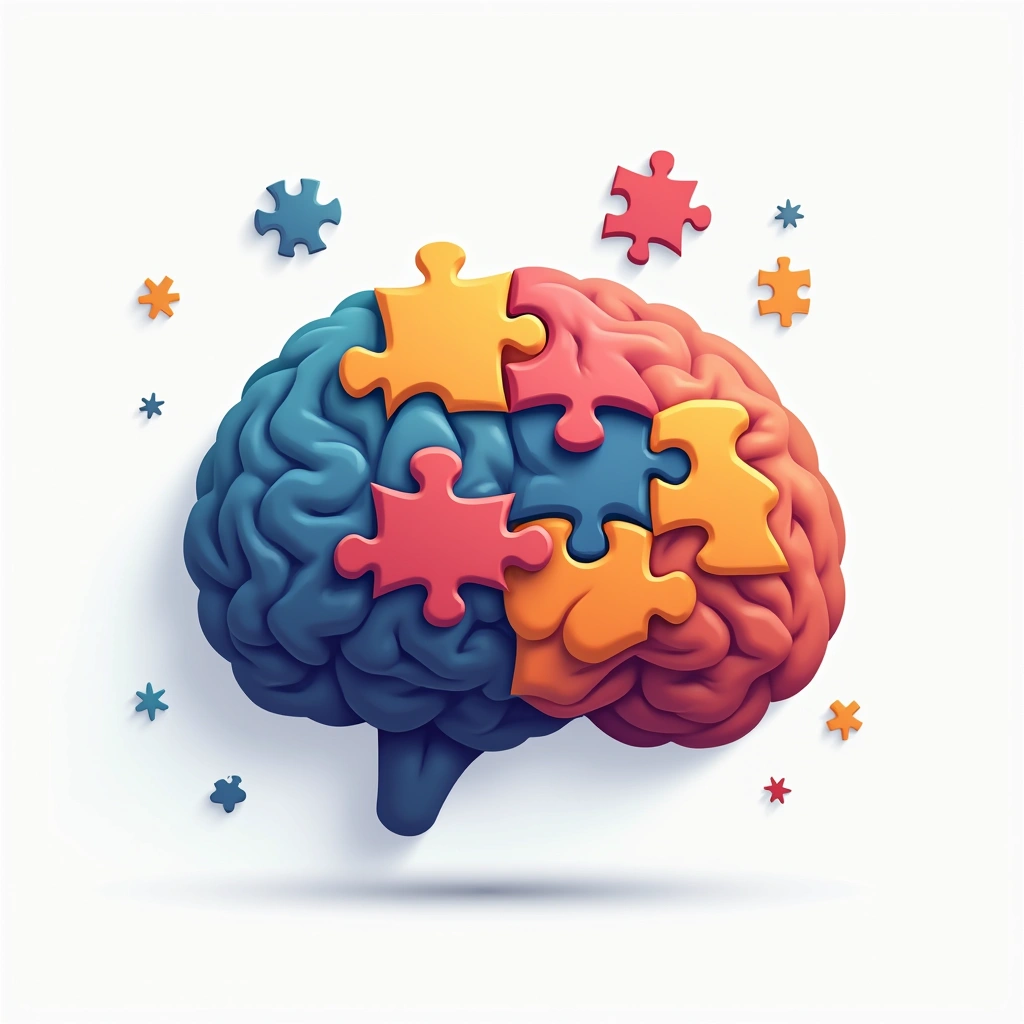Ray Dalio Habits - Principles for Success and Decision Making
Unveiling the Habits of Ray Dalio
Ray Dalio, the founder of Bridgewater Associates, one of the world's largest hedge funds, attributes his extraordinary success not just to intellect, but to a carefully cultivated set of habits. These habits, detailed in his book "Principles," emphasize radical truth, transparency, and a systematic approach to decision-making and continuous improvement. By embracing these principles, Dalio has built a culture of meritocracy and achieved remarkable results in the highly competitive world of finance.
These habits are not just for investors; they offer a framework for anyone seeking to enhance their critical thinking, decision-making, and overall effectiveness in any domain. They provide a roadmap for personal and professional growth through disciplined self-reflection and a commitment to learning from both successes and failures.
"Pain + Reflection = Progress."
Filter Habits
 Ray Dalio's Habit Sets
Ray Dalio's Habit Sets

Autonomous Work Ethic
Pursue self-directed projects and income streams from an early age to build self-reliance. Start with simple ventures like delivering newspapers or small investments to cultivate entrepreneurial thinking.
Why This Matters
Ray Dalio hated being told what to memorize in school and realized true motivation comes from working toward self-defined goals. This habit allowed him to develop financial independence and critical thinking skills foundational for Bridgewater's success.

Expert Reasoning Analysis
Proactively seek diverse perspectives from domain experts, focusing on dissecting their decision-making frameworks rather than accepting conclusions at face value. Record and compare analytical patterns.
Why This Matters
Dalio credits his early investment success to studying how experienced investors evaluated risks/rewards. By reverse-engineering their mental models rather than copying trades, he developed adaptable market intuition.

Preemptive Risk Containment
Before major decisions, systematically identify worst-case scenarios and create hedges against them. Only proceed when potential downsides are mitigated through portfolio diversification or contractual safeguards.
Why This Matters
Dalio nearly bankrupted Bridgewater by overleveraging in 1982. He now uses this habit to prevent single points of failure, allowing bold bets while protecting the firm's longevity.

Error Post-Mortems
Within 24 hours of any significant mistake, document what happened, root causes, and prevention strategies. Share analyses publicly to normalize learning from failures.
Why This Matters
Dalio believes unexamined errors compound, while studied ones build wisdom. Bridgewater's 'Issue Log' contains 60,000+ employee mistakes used for continuous improvement.

Principles Codification
Maintain a living document of decision-making heuristics across life domains. Update principles quarterly based on new experiences and team feedback.
Why This Matters
Dalio's 123-page 'Principles' manifesto started as personal notes. He found written rules enable consistent choices amid market chaos and scale cultural values across organizations.

Transcendental Meditation
Practice 20 minutes of mantra-based meditation twice daily. Use sessions to observe thoughts non-judgmentally, enhancing mental clarity and emotional equilibrium.
Why This Matters
Dalio credits meditation with providing the focus to manage $160B portfolios. It helps him differentiate ego-driven impulses from analytical insights, crucial for high-stakes decisions.

Pre-Market Diagnostic
Analyze global asset movements before US markets open. Cross-reference overnight Asian/European trading data with geopolitical news to identify dislocations.
Why This Matters
Dalio's 6 AM routine spots early macroeconomic shifts. This habit helped Bridgewater anticipate the 2008 crisis by tracking mortgage derivative anomalies months in advance.

Habit Stacking Protocol
Anchor new routines to existing behaviors using Duhigg's cue-routine-reward loop. Example: Meditate immediately after brushing teeth to leverage established morning patterns.
Why This Matters
Dalio needed reliable systems during Bridgewater's growth phases. He attributes 18-month habit formation cycles to the firm's ability to scale without cultural dilution.

Radical Meeting Transparency
Record all strategic discussions and make transcripts searchable company-wide. Encourage junior staff to challenge executives' logic during live meetings.
Why This Matters
Dalio believes hierarchy distorts truth. This habit surfaces blind spots through meritocratic debate, exemplified when a new analyst corrected his bond market thesis.

Believability Weighting
Assign decision-making authority based on proven track records in specific domains. Use algorithms to balance inputs from top-performing specialists.
Why This Matters
Dalio developed this after overvaluing his own opinions early career. Bridgewater's 'Baseball Cards' system rates employees' historical accuracy on key metrics.

Painful Truth Confrontation
Seek critical feedback weekly from diverse colleagues. Ask specifically about blind spots and unpopular opinions others might withhold.
Why This Matters
Dalio's near-bankruptcy taught him that unaddressed weaknesses compound. He institutionalized 'pain + reflection = progress' as a core company value.

Subconscious Problem Incubation
Present complex challenges to mind before sleep. Keep notebook bedside to capture nocturnal insights upon waking.
Why This Matters
Dalio attributes breakthrough investment theses to this habit. Meditation-trained focus allows him to consciously access creative subconscious processing.

Anti-Fragility Calibration
Stress-test decisions against historical crisis analogs like 1929 or 2008. Allocate 15% portfolio to hedge against low-probability catastrophic scenarios.
Why This Matters
Dalio's 'All Weather' strategy emerged from studying depression-era markets. This habit balances innovation with reverence for cyclicality.

Temperament Triangulation
Before major moves, consult one optimist, pessimist, and realist. Synthesize perspectives using weighted averages based on domain expertise.
Why This Matters
Dalio avoids confirmation bias by institutionalizing viewpoint diversity. This habit fueled contrarian bets like shorting European banks pre-2011 crisis.
Energy Oscillation Management
Schedule creative work during circadian peaks (10 AM-12 PM), administrative tasks in troughs (2-4 PM). Use 25-minute meditation naps to reset focus.
Why This Matters
Dalio maximizes mental clarity by aligning tasks with biological rhythms. This habit sustains productivity without burnout over 50+ hour workweeks.

Legacy Projection
Quarterly write own obituary from future perspectives. Adjust current priorities to align with desired historical impact.
Why This Matters
Dalio's philanthropy shift stemmed from realizing wealth accumulation alone wouldn't define his legacy. This habit maintains purpose beyond financial metrics.

Algorithmic Humility
Program decision-making biases into AI models. Continuously compare machine learning outputs with human judgments to identify cognitive distortions.
Why This Matters
Dalio pioneered algorithmic investing but insists machines should check human egos, not replace them. This habit balances quantitative and qualitative analysis.

Cross-Disciplinary Immersion
Quarterly study a field unrelated to finance (e.g., marine biology, Renaissance art). Identify transferable patterns through first-principles reasoning.
Why This Matters
Dalio credits 2008 crisis navigation to lessons from evolutionary biology. This habit builds analogical thinking crucial for black swan prediction.

Scenario Stress Testing
For key decisions, develop three plausible scenarios: base case, worst case, and transformative case. Allocate resources to thrive in all three.
Why This Matters
Dalio's 1982 near-bankruptcy taught him single-scenario planning is reckless. This habit enabled Bridgewater's stability during multiple market crashes.

Neuroplasticity Nudges
Daily practice ambidextrous tasks (e.g., brushing teeth with non-dominant hand). Use spaced repetition apps to reinforce new conceptual frameworks.
Why This Matters
Dalio believes cognitive rigidity destroys investors. This habit combats aging-related mental decline, maintaining his edge into his 70s.
Key Takeaways for Personal Growth
Ray Dalio's habits provide a powerful framework for personal and professional development. By integrating these key takeaways into your daily routine, you can cultivate a more systematic, reflective, and ultimately successful approach to life and work.
- Autonomous Initiative: Develop self-reliance by pursuing independent projects and income streams early on. This cultivates entrepreneurial thinking and financial responsibility.
- Expert Analysis: Focus on understanding the reasoning of experts, not just their conclusions. Dissect their decision-making processes to build adaptable intuition.
- Risk Mitigation: Always preemptively identify and hedge against worst-case scenarios before making significant decisions. This protects against catastrophic failures and allows for bolder moves.
- Error Analysis: Systematically analyze mistakes within 24 hours to understand root causes and prevent recurrence. Embrace failure as a learning opportunity.
- Principle-Based Living: Create and maintain a living document of personal and professional principles. This provides consistency in decision-making and scales values across teams.
- Mindful Clarity: Utilize transcendental meditation to enhance mental clarity and emotional equilibrium. This helps differentiate between ego-driven impulses and rational insights.
- Proactive Awareness: Develop a pre-market diagnostic routine to identify early shifts and potential opportunities by analyzing global market movements.
- Habit Integration: Employ habit stacking to seamlessly integrate new routines by anchoring them to existing behaviors. This fosters sustainable habit formation.
- Radical Transparency: Promote openness and transparency in discussions and decision-making to surface blind spots and encourage meritocratic debate.
- Credibility-Weighted Decisions: Prioritize input based on proven track records and domain expertise. Balance inputs from top performers for more accurate judgments.
- Truth-Seeking Feedback: Actively seek critical feedback to confront painful truths and address weaknesses proactively. Embrace discomfort as a catalyst for growth.
- Subconscious Incubation: Utilize subconscious problem incubation by presenting challenges to your mind before sleep and capturing nocturnal insights.
- Anti-Fragility: Stress-test decisions against historical crisis analogs and allocate resources to hedge against low-probability catastrophic events.
- Perspective Triangulation: Consult diverse viewpoints – optimist, pessimist, realist – to avoid confirmation bias and gain a balanced perspective.
- Energy Management: Optimize productivity by aligning tasks with circadian rhythms and utilizing short meditation naps to reset focus.
- Legacy Focus: Regularly engage in legacy projection by writing your own obituary to align current priorities with desired long-term impact.
- Algorithmic Humility: Use AI to check human biases and cognitive distortions in decision-making. Balance quantitative and qualitative analysis.
- Cross-Disciplinary Thinking: Expand your thinking by immersing yourself in fields outside your domain. Identify transferable patterns and build analogical reasoning.
- Scenario Planning: Develop multiple plausible scenarios for key decisions – base, worst, and transformative – to ensure resilience across outcomes.
- Cognitive Flexibility: Practice neuroplasticity nudges to combat cognitive rigidity and maintain mental agility over time.
Start implementing one or two of these habits today and begin your journey towards a more principled and successful life.
